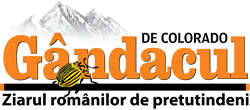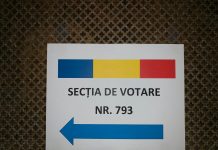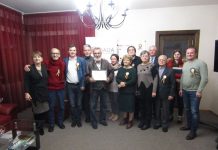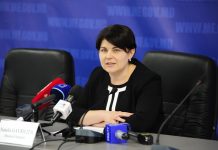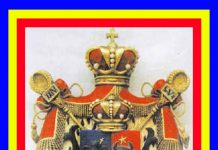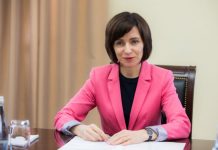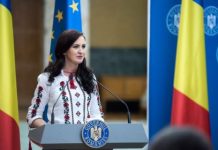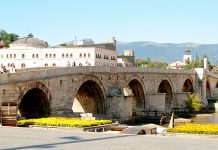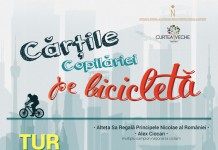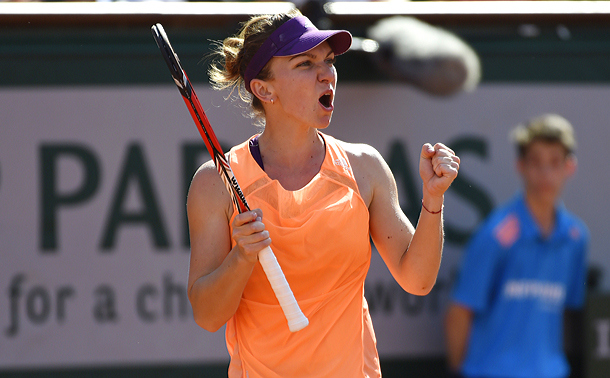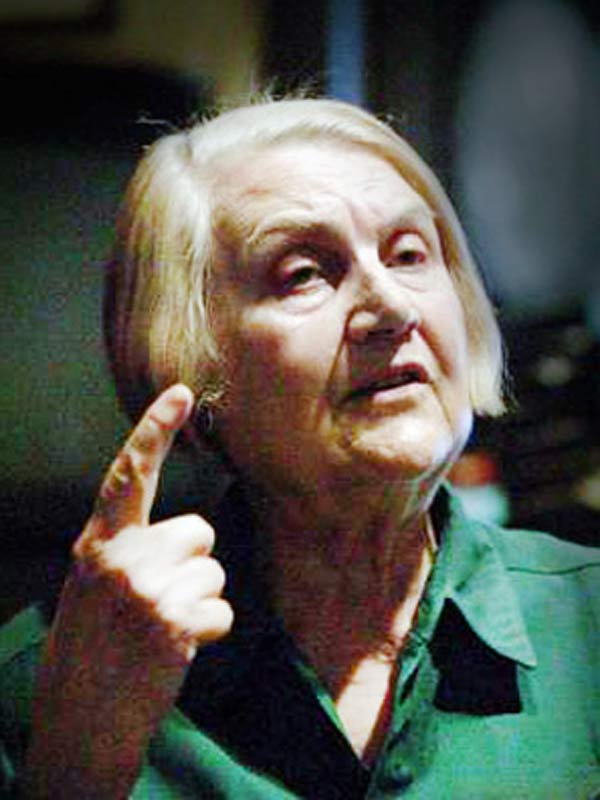 NOMINATION
NOMINATION
Bucharest, 29 January 2015
TO: The Nobel Committee of the
Royal Swedish Academy
Street: Källargränd 4
Stockholm, SWEDEN
Tel.: +46 (0)8 663 09 20
Fax: +46 (0)8 660 38 47
E-mail: info@nobel.se, comments@nobel.se
SUBJECT: 2015 Nobel Prize in Literature
Dear Nobel Committee Members,
The „Academia DacoRomână“ from Bucharest, Romania, is pleased to nominate the bilingual (Romanian-French) writer ILEANA VULPESCU for the 2015 Nobel Prize in Literature. 2
She has published over 20 literary books written in Romanian and French; some of them were translated into French, Hungarian, Italian, Slovak, etc.
ILEANA VULPESCU was born on the 21st of May 1932 in a farmer’s family in the village of Bratovoieşti (Dolj county), Romania.
After being awarded the Bachelor of Letters (French Language and Literature/Letters) by The University of Bucharest (1953-1958), she worked as a lexicographer at the Romanian Institute of Linguistics (1959-1975) where she collaborated on the editing of both the Romanian Language Dictionary and the Romanian Explanatory Dictionary.
In 1962, she had her editorial debut with a translation of André WURMSER’s L’Assassin est mort le 1er/ Asasinul a murit I-ul.
Her first original work, the short story Letter to an acquaintance/ Scrisoare către un cunoscut is published in The Family Magazine/ revista Familia, series V, II, 7 (11) July 1966.
She became a member of the Writers’ Union of Romania in 1972. In April 1990, she was elected in the Steering Committee of that same Union, position from which she resigned in October that year.
She writes prose, drama, translates from the English, French and Spanish literatures and renders verses of the modern and contemporary Romanian literature in French. Her literary works, always faithful to the time and space in which their action is being placed, finds the heroes permanently confronting with the eternal existential dilemma of accepting or revolting against their destiny.
In 1976, her debut novel Farewell/ Rămas-bun (2.100 copies) won the Writers’ Association of Bucharest Award for prose; in 1980, her box-office hit novel The Art of Conversation/ Arta conversaţiei (50.000 copies) was awarded the Ion Creangă Award (by the Romanian Academy) and the Cîntarea României Award; in 1987, Bless this land/ Sărută pământul acesta (50.000 copies) won the Flacăra Award. All the novels at that time were published at Cartea Românească Publishing House. Her literary craftsmanship was crowned when she received the România Mare Award in 1991.
Alongside other original literary works, published or played, we recall the collection of prose and short drama published under the title E.T.C. / Ş.A.M.D., Espla Publishing House, 1969 (7.500 copies) Candidates for Happiness/ Candi-daţii la fericire, Cartea Românească Publishing House, 1983 (35.000 copies), and the fantasy play The Enchanted Garden/ Grădina fermecată, which saw the limelight at the Puppet Theatre in Iaşi (1980-1981 season). The staging of her 1980 novel, The Art of Conversation (in collaboration with Romanian actor George BĂNICĂ) has been staged at The Giuleşti Theatre (premiered on the 31st of May 1983 and had over 1.000 representations by June 1990, under the direction of 3 Eugen TODORAN); at The States Theatre in Oradea (premiered on the 3rd of November 1983, under the direction of Zoe ANGHEL-STANCA); at The National Theatre in Craiova (premiered on the 26th of October 1984, under the direction of Remus MĂRGINEANU); and at the Cluj-Napoca National Theatre (1985-86 season, under the direction of DEHEL Gábor). A more recent dramatization, The Loneliness of a Woman (The Art of Conversation part II)/ Singurătatea unei femei (Arta Conversaţiei II) on which she once again collaborated with Romanian actor George BANICĂ, was staged by the Arlechin Theatre Company (premiered on the 10th of June 1990 in Piteşti, under the direction of Mihai MANOLESCU).
The author also worked alongside her husband, Romulus VULPESCU, on the retellings of François RABELAIS’ Gargantua, Tineretului Publishing House 1968 and Gargantua & Pantagruel, Tineretului Publishing House, 1968, Ion Creangă Publishing House, 1989 and solo on Alphonse DAUDET’s The Extraordinary Adventures of Tartarin of Tarascon/ Extraordinarele aventuri ale lui Tartarin din Tarascon (Tartarin de Tarascon/ Tartarin din Tarascon; Tartarin sur les Alpes/ Tartarin în Alpi; Port-Tarascon/ Portul Tarascon), Ion Creangă Publishing House, 1978.
Among her translations we recall: Samuel PEPYS’ Diary/ Jurnal (in collaboration with Romanian translator Costache POPA), 1965 (English literature); Juan Ramón JIMÉNEZ, Platero y yo/ Platero şi cu mine, 1966 (Spanish literature); Joë HAMMAN, Un drame au Far West/ Far West, 1966; Jean DEFRADAS, Literatura elenă, 1968; Ambroise VOLLARD, Souvenirs d’un marchand de tableaux/ Amintirile unui negustor de tablouri, 1969, 1993; Simone de BEAUVOIR, Les Belles Images/ Imagini frumoase, 1973; Le Sang des autres/ Sîngele celorlalţi, 1993; François NOURISSIER, La crève/ Sfîrşitul, 1974; André MAUROIS, Le pays de trente-six mille volontés/ Ţara celor o mie şi una de mendre, 1976; Michel TOURNIER, Vendredi es les limbes du Pacifique/ Vineri sau limburile Pacificului, 1978, 1997 (French literature). She accomplished retroversions in French of Valeriu Sârbu’s screenplay’s La Ballerine orange/ Balerina portocalie, 1968 and Acceptez le rétroviseur/ Acceptaţi retrovizorul, 1973; Romulus VULPESCU’s Récital extraordinaire (stories and drama), Seghers, Paris, 1968, Geo BOGZA’s bilingual edition Poésies et poèmes, Minerva Publishing House, 1979 and verses by Wolf AICHELBURG, Ioan ALEXANDRU, Radu BOUREANU, Constanţa BUZEA, Nina CASSIAN, Ştefan-Augustin DOINAŞ, Eugen JEBELEANU, Al. PHILIPPIDE, Nichita STĂNESCU, Virgil TEODORESCU in 30 poètes roumains contemporains, Cartea Românescă Publishing House, 1978.
The year 1996 sees the publishing of The Block from the Map Case/ Carnetul din port-hart at both Eminescu Publishing House (3.000 copies) and Tempus Publishing House (30.000 copies). After being republished in 1992 at Arta Grafică Publishing House (150.000 copies), The Art of Conversation is published 4
in 1998 by Tempus Publishing House. That same year, the latter publishes Biding Farewell to the old house/ Rămas-bun casei părinteşti. The author embraces the new millennium with a new edition of Bless this Land/ Sărută pământul acesta and with an extended edition of her 1983 novel Candidates for Happines/ Candidaţii la fericire. From 2002 ‘till nowadays all of her novels have been published at Tempus Publishing House: The Art of Compromise/ Arta compromisului (2002), ‘Bout love, ‘bout bitterness, ‘bout blue devils/ De-amor, de-amar, de inimă albastră (2005), Tied with a string this life of mine/ Viaţă, viaţă legată cu aţă (2007), Down the drain/ Pe apa sîmbetei, Typed Memo/ Nota informativă bătută la maşină (2010) and When do we die, doctor ? / Noi, doamnă doctor, cînd o să murim ? (2012).
After the death of her husband, Romulus VULPESCU, she sought to publish his unfinished work, and released in November of 2013 at Semne Publishing House: VILLON OPERA OMNIA, a complete critical edition containing the works of the famous medieval French writer François Villon.
Her novels have been translated into Slovak (Biding Farewell to the old house), Hungarian (The Art of Conversation), Italian (Bless This Land) and French (The Art of Conversation).
Yours sincerely,
Dr. Geo Stroe, President of the “Academia DacoRomȃnă”
SENATUL FUNDAŢIEI ACADEMIA DACOROMÂNĂ “ TEMPUS DACOROMÂNIA COMTERRA”
____________________________
FUNDATIA ACADEMIA DACOROMÂNĂ „TEMPUS DACOROMÂNIA COMTERA” (F.A.D.R.T.D.C.) este rezultatul unificării prin absorbţie a FUNDAŢIEI TEMPUS, fondată de preşedintele fondator Geo Stroe (constituită la 23.11.1991 în Traian; dosar 751/PJ/1991 la Judecătoria sect.1), cu ACADEMIA DACOROMÂNĂ – A.D.R. (continuatoare şi legatară unică a Institutului Naţional pentru Românitate şi Românistică – INPROROM, fondat la 1.12.1991 şi a Cercului de studii DECENEU din anii `70, dosar nr. 34/PJ înregistrat la 24.01.1992 la Judecătoria Sect.1, prin sentinţa civilă nr. 49 din 31.01. 1992, reorganizată, ulterior, reorganizată în Academia Dacoromână la 9.05.1995; apoi, cu alte modificări în dosarul nr. 51/P.J./2003), pentru înfăptuirea Programului PROTEMDACOM-10 050 (2 050). Ca fundaţie, este independentă de stat sau de partide politice, non-profit, are personalitate juridică de drept privat, de cercetare în domeniile ştiinţei, culturii, artei şi tehnicii, independentă în acţiunile ei. Ea se constituie ca o societate a oamenilor liberi, care au conştiinţă de dacoromâni şi deviza: “A fi pentru a şti, a şti pentru a avea, a avea pentru a putea, a putea pentru a face, a face pentru a fi oameni fericiţi!” A.D.R. este autonomă în cadrul F.A.D.R.T.D.C. cu deviza: “Întru eternizarea valorilor temporale dacoromâneşti pe Terra noastră comună, într-o lume comterristă, a fiecăruia şi a tuturora!” Scopul A.D.R. este cunoaşterea, cercetarea, crearea, stimularea, promovarea, apărarea şi eternizarea valorilor dacoromâneşti de pretutindeni, pe Terra noastră comună. Obiectivul strategic al A.D.R. este pregătirea spirituală a renaşterii pentru reîntregirea naţiunii dacoromâne de pretutindeni în contextul valorilor umane universale. Are cont CEC Bank S.A., Ag. Dr. Taberei, Buc., sect.6, Cod IBAN Cod IBAN R035CECEB60443RON0354455, Cod fiscal nr. 4929150. Asociaţia culturală Ialomiţa -„ASCULTIALOMIŢA”- este filiala independentă a F.A.D.R.T.D.C., cont BCR S.A. Ialomiţa – Slobozia, cod fiscal nr.15162556, IBAN RO14RNCB3100000057540001
www.tempusdacoromania.ro ; www.academiadacoromana.ro , geostroe@gmail.com
